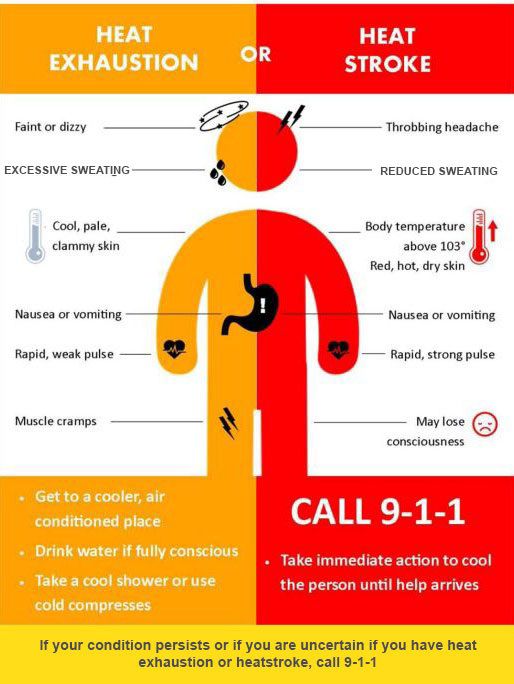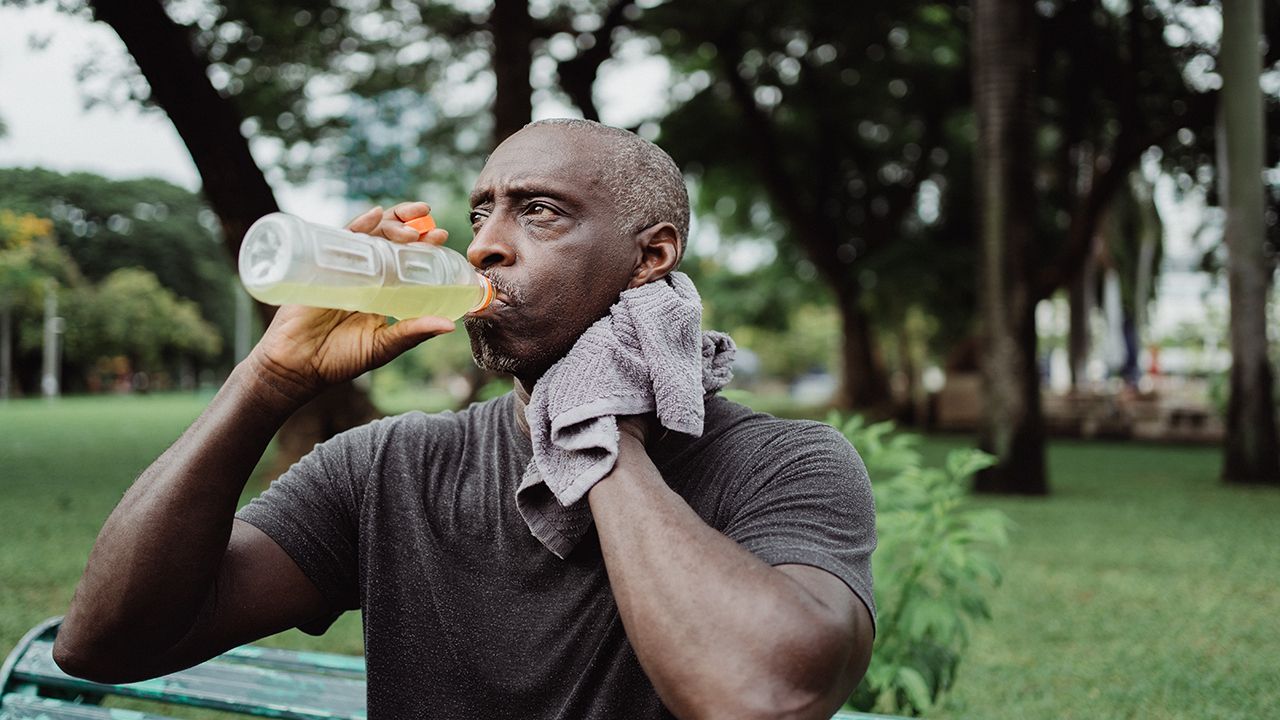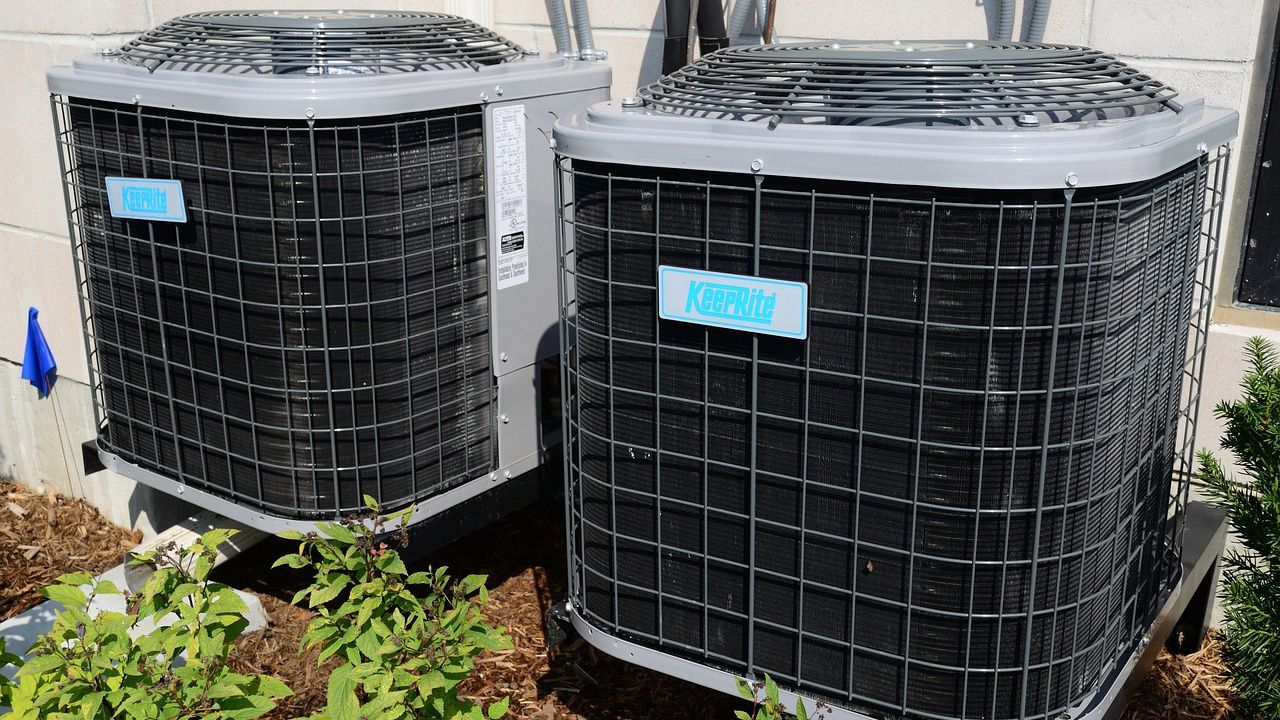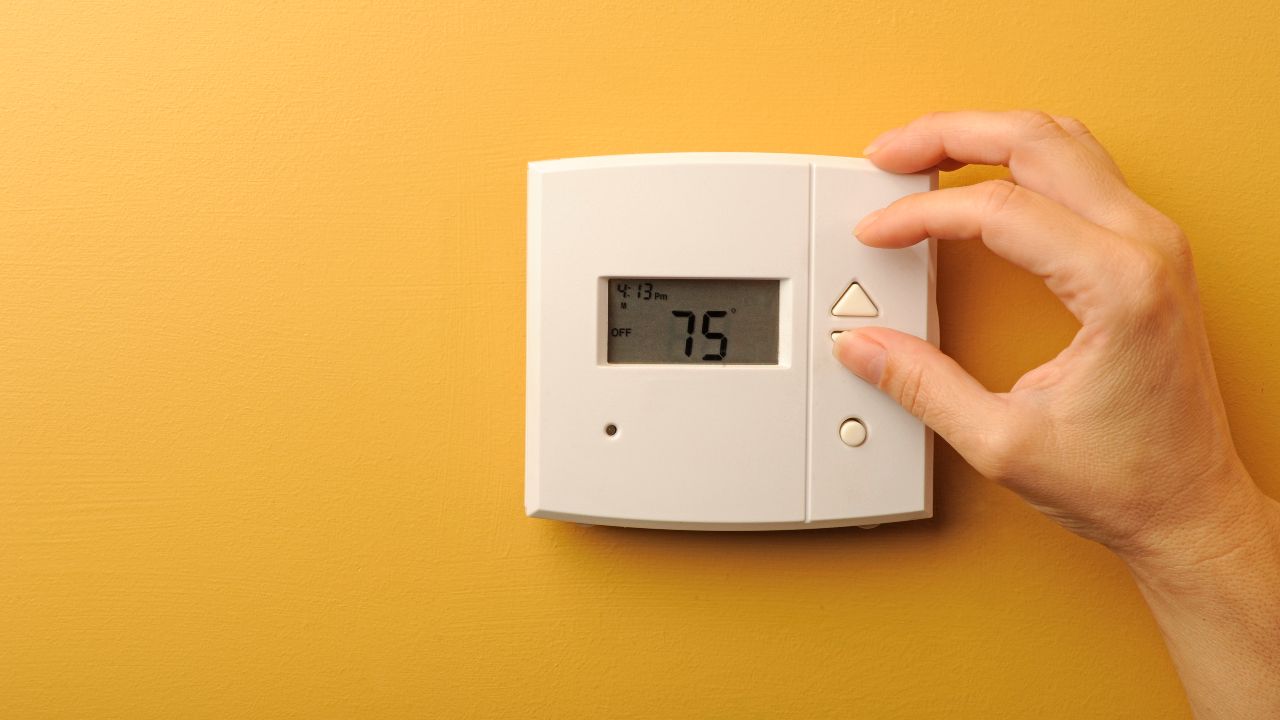Summer is officially here, and that means more hot temperatures.
There are many symptoms of heat exhaustion and heat stroke. Know the signs before heading outdoors.

Different personal and weather factors can also affect your body in the heat.
First, determine if the outside heat is dry or humid. With high humidity, your sweat can’t evaporate quickly. This keeps your body from releasing heat and cooling down.
Some other personal factors in whether or not you can efficiently cool down include:
- Age
- Obesity
- Dehydration
- Heart disease
- Poor circulation
- Sunburn
Those at the highest risk include people 65 and older, children younger than two, and people with chronic diseases or mental illness.
Once you know your risks, know what actions to take to stay safe.
The best rule for hot weather is to stay in air-conditioned buildings and limit outdoor activity.
Drink more water than usual and don’t wait until you’re thirsty to drink.
If you have to spend time outside, try to schedule outdoor events early or later in the day when it's cooler. Wear and reapply sunscreen, and wear loose, lightweight, light-colored clothing.
Remember, always check the Spectrum News App for your forecast, so you can fully prepare for the day!
Shelly Lindblade - Weather Producer
Shelly Lindblade is a weather producer for Spectrum News. She graduated from Florida State University with a Bachelor's of Science in Meteorology and started her career in front of the camera as a broadcast meteorologist. After 4 years of TV broadcasting, she now loves updating the public on the latest weather news from behind the scenes.







